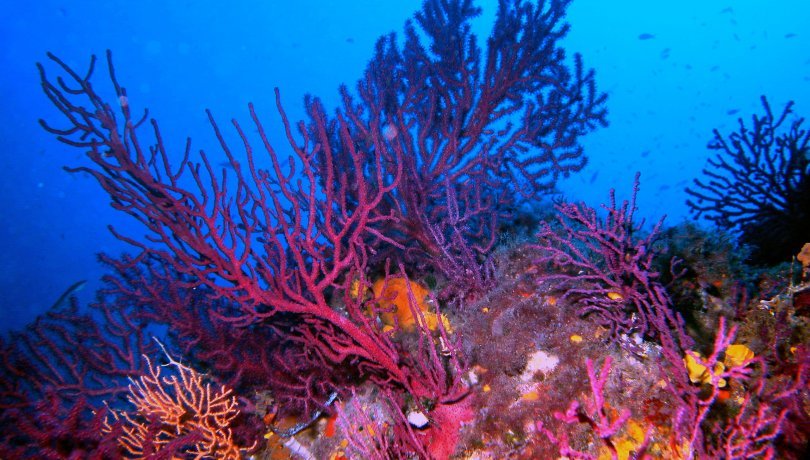The Institute of Marine Sciences (ICM-CSIC) leads a study, published in Global Change Biology, which proposes a conceptual framework and classification for ocean acidification refugia (OAR) for the first time. OARs are specific locations where ocean acidification impacts could be less intense, protecting biodiversity.

The Institute of Marine Sciences (ICM-CSIC) leads a study, published in Global Change Biology, which proposes a conceptual framework and classification for ocean acidification refugia (OAR) for the first time. OARs are specific locations where ocean acidification impacts could be less intense, protecting biodiversity.
OARs can be spatial, where a physical barrier minimizes exposure to low pH seawater; or adaptive, where conditions stimulate genetic adaptation. In the first case, the species are protected against the extreme conditions of acidification, such as in deep-sea mountains or points of high primary production. In the second, organisms are exposed to low pH seawater intermittently, as occurs, for example, in areas with frequent deep seawater upwelling, where species can develop adaptation mechanisms.
Dr. Lydia Kapsenberg, main author of the work and Marie Curie researcher at the ICM-CSIC, indicates that the study "reviews the current literature and proposes possible climate change refugia to face ocean acidification". In her words, this study allows "scientists, legislators and policy-makers know where and how to invest conservation efforts". Currently, the management of acidification refugia does not have global protocol.
Consequence of climate change and atmospheric CO2 absorption by oceans
The ocean absorbs much of the anthropogenic CO2 emissions, which alters the pH balance and leads to the reduction in seawater pH known as acidification. Ocean acidification threatens marine ecosystem and organisms around the world and especially affects calcifying organisms such as bivalves, corals and sea urchins. In the northwest Pacific Ocean, oyster farms have suffered great losses due to low pH levels.
This research also analyses the possibility of modifying seawater pH to generate small-scale operational refugia, with the aim of managing marine resources to favour, for example, the growth of shellfish in fish farming.
Dr. Kapsenberg explains that, although reducing global anthropogenic CO2 emissions must remain a priority, "the management of marine climate change refugia at a local level could be a key to keep the resources and biodiversity of marine ecosystems".
Source: Kapsenberg L, Cyronak T. Ocean acidification refugia in variable environments. Glob Change Biol. 2019;00:1–14. https://doi.org/10.1111/gcb.14730
Press release: CSIC local office in Catalunya